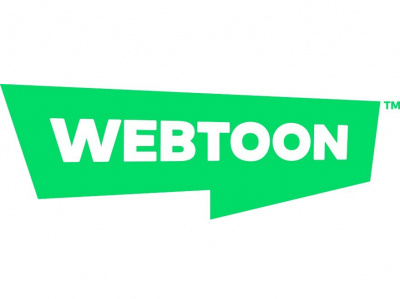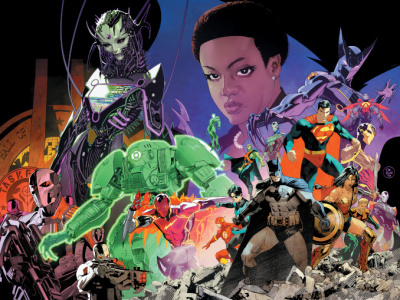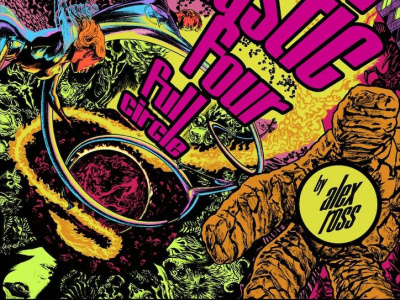 We talked to Marvel publisher Dan Buckley in our annual interview on the state of the market, Marvel’s year, and its plans for the future. In Part 2, we talk about kids comics, movies and graphic novels, and Marvel’s 2010. In Part 1, we talked about the state of the market, comic pricing, and digital and motion comics:
We talked to Marvel publisher Dan Buckley in our annual interview on the state of the market, Marvel’s year, and its plans for the future. In Part 2, we talk about kids comics, movies and graphic novels, and Marvel’s 2010. In Part 1, we talked about the state of the market, comic pricing, and digital and motion comics:In a couple of contexts so far in this interview you’ve talked about the search for new readers and recruiting new readers. Overall how do you feel about Marvel’s kids-friendly titles? Do you think there are enough of them? Is that growing area for you?
I think there are enough. The good thing that’s really important that we’ve developed is we have a library of content now. I know Marvel Adventures Spider-Man is getting up there in the original issue count. Now we actually have a library of content that we can share in a variety of different distribution channels. Online as digital comics they’re all available for kids to read at Marvelkids.com (I think all of them are available, if not, it’s like ninety per cent). It provides us greater capability to make some kind of penetration in mass market and book store markets because we can actually have a shelf presence. When we first started this with the help of David Gabriel and a couple other people, it was hard to get any attention from anybody because we had four comics and a digest. We found our way into the children’s sections of Barnes & Noble and Borders; we’re hoping to continue to make headway in that space and use that content to go across the board. They perform fairly well in subscriptions for us.
I wish these products performed better in the hobby market but I accept the fact that it doesn’t really talk to the core demographic that goes to our hobby market. But I think it’s very important that we provide that product to our hobby market retailers because that way a dad, a brother, an uncle can provide an entry point for his child, or brother, or nephew or niece to the product. Six years ago you and I would have been very challenged and almost everyone else in the industry would have been very challenged to provide an all-ages superhero comic. DC had some initiatives but they really didn’t have a lot other than mostly tied to their Warner Brothers properties. And Marvel had nothing. I’m very pleased with what we’ve done. We continue to hope to expand the distribution of those products.
We talked a year ago about the impact of movies on graphic novel sales. Obviously we saw a real outlier this year in the form of Watchmen and the number of graphic novels that it sold, which relative to the scale of the movie was pretty unprecedented. You said your trades were doing well this year but the titles you listed were primarily non-superhero titles.
I talked about that because that was an aberration in year over year sales, when we talked about why I had such a strong fourth quarter in book sales, so I wasn’t trying to ignore superhero fiction--we sold a lot of Wolverine products.
We always gear up around a movie. We’re going to have a lot of collected Iron Man product that’s going to be available. We perform very well in the mass, in the book stores.
Watchmen is an interesting aberration which is something Marvel doesn’t really have right now and I don’t know if we ever will because we tend to tell continuous stories. We never really stop at twelve [issues] if it’s successful. The way that that book was constructed it has a beginning, a middle, and an end and that’s it--that’s how you experience that product, much more like a traditional book. Combined with incredibly great marketing, the fact that’s the only book you can buy really kept people focused on selling it and moving it. And it’s a great piece of graphic fiction. I don’t know if we’ll have another outlier like that again that captured all those types of imaginations because that’s something that was very spot on--kind of a take on superheroes too. V for Vendetta doesn’t really have that.
We at Marvel don’t really have that type of book. We have a lot of great characters and we have a lot of great volumes on our great characters, so we’ll sell multiple SKUs: a variety of different Iron Man stories, a variety of different Wolverine stories, a variety of different Spider-Man stories. I do think those movie properties will help keep on driving graphic fiction sales, because people get really interested in them and they want to try and digest the stuff. One of the bigger challenges we have (and other serialized fiction publishers have) is making sure you pick the right books for collections to put out there that will not only give them the essence of what they felt they really enjoyed in the movie but also really give them an entre into the world of Iron Man, for example.
Let’s talk about Marvel’s 2010. What are you most excited about in your 2010 publishing schedule?
I’m very excited about Siege. It’s a great platform to launch where we want to go with our core Marvel Universe publishing for the next couple years. I think it’s a great ending and a great platform for a new beginning. We’re very excited about where we’re going to take the Marvel Universe in our Heroic Age; we want to go into more of what we’re calling the Heroic Age after Siege. We’re trying to get a little bit more into the families of publishing, not as line-wide, to provide people with very digestible beginning, middle and end content with top characters and top creators in conjunction with the Marvel Universe.
So smaller scale?
Less line-wide (I’m not going to say that some of our editors and some of our creators who have relationships might not play with doing something with each of their books). Siege is line-wide but you’re kind of seeing it with the Hulk, it’s really Jeph Loeb, Greg Pak, Mark Paniccia, Jeff Parker, Fred Van Lente sitting in a room saying, “Hey let’s come up with something that’s really cool for driving the concept of the Hulk.” It’s not going across the line in the books. You’ll see that with the X-Men books, you’ll see it with Spider-Man. We’re also developing a platform of products that will be beginning, middle and end, limited series of books that are very driven by having great creators working on some of our top characters.
We’re trying to kind of cleanse the palate a little bit. I’m not saying that we’ll never do a line-wide crossover again. I just think the consumers, the retailers, our creators, our editors all need to breathe a little bit and tell some stories that they want to tell amongst themselves or by themselves. Hopefully that’s something that will excite the creative community. We still have to market it and package it in a way that people can understand it and get excited about it.
I’m very excited about that approach, with lending the creators a little bit more time to chew amongst themselves. I’ve read what Fraction wants to do with Thor and it’s really cool stuff by itself. I’ve read what we want to do with Iron Man and I’m very excited about that. It will eventually lead into some other stuff, I’m not denying that, but I’d like to see where everyone takes it and see how it all kind of re-meets others again in the next couple of years.
I’m very excited about the Ultimates line. We spent three, maybe four years in conversations with Bendis, Loeb and Millar, talking about how we make sure we differentiate the Ultimates comics line from the Marvel Universe. Brian, Jeph, and Mark have all kind of developed some unique takes on the characters that will define Ultimates as its own universe, not making it unrecognizable but definitely its own place. Not as much as the archetype universe.
I’m very excited about The Wonderful Wizard of Oz. You can tell just by the way it’s performed and the how people reacted to it, how we’ve reacted to it. That project was quite simply launched on a sketch by Skottie. Someone sent it and I said, “That’s cool, do we want to publish it?” I think that’s what David Gabriel was hoping I would say. (laughing) And that’s how it started, completely. There was no pitch document, there was no packaging of it. I think people started to say let’s go talk to Eric because he’s so well respected and understands Baum’s world so well.
I know I’m probably leaving stuff out but those are the big things in the short term.
In terms of the media environment, you talked about the films. Last year you were talking about how television was starting to play the role of a “form of connective tissue” between some of the bigger scale things like movies and the comics.
We’re a lot more involved obviously in going beyond publishing…I’m very pleased with what we’ve done with Super Hero Squad. From a Marvel standpoint, it’s a product that speaks to younger kids; it’s a great entry point; the digest performed incredibly well for us. It shows a great deal of commitment on Marvel’s behalf to try to get new consumers into the Marvel experience, to become readers, to become fans. This show’s performed very, very well on Cartoon Network. We are continuing to produce that show.
We do have other product we’re looking to release in the next year that kind of acts as a bridge. I can’t talk about the specific shows, but we will get more exposure of our characters in that medium. We all talk about the Internet but TV’s still king with that group of kids and the more we can get them involved with our characters earlier, the more likely we are to get these readers, and reinvigorate the industry with readers and creators. It’s playing a much bigger role and Marvel has a strategy.
Obviously I’m excited about Iron Man II. I’ve seen it (pieces of it). It’s going to be a lot of fun. It will bring a whole level of excitement back to Marvel characters.
I’m excited about doing motion comics. I think we haven’t even tapped how we are going to distribute that material and how we’re going to bring more consumers into the experience of Marvel and Marvel story-telling. That’s why I’m so excited about motion comics. That’s really a pretty untarnished view of how our creators work, and it’s also fun for the creators to get involved, to see their works being presented in another way, in a way they never conceived that they would be involved in, or that there would be such an interpretation of what they did. That speaks to a slightly older consumer but you realize how much it skews older when you animate it (laughter).
There’s just a lot of compelling things we’re doing and a lot of different angles. Another one is the Super Hero Squad casual MMO which will be coming out sometime next year or early the following year. We’re targeting next year. I’ve seen the beginnings of it and it’s just fun (laughter). So there are a lot of different things.
Click here to go back to Part 1.







